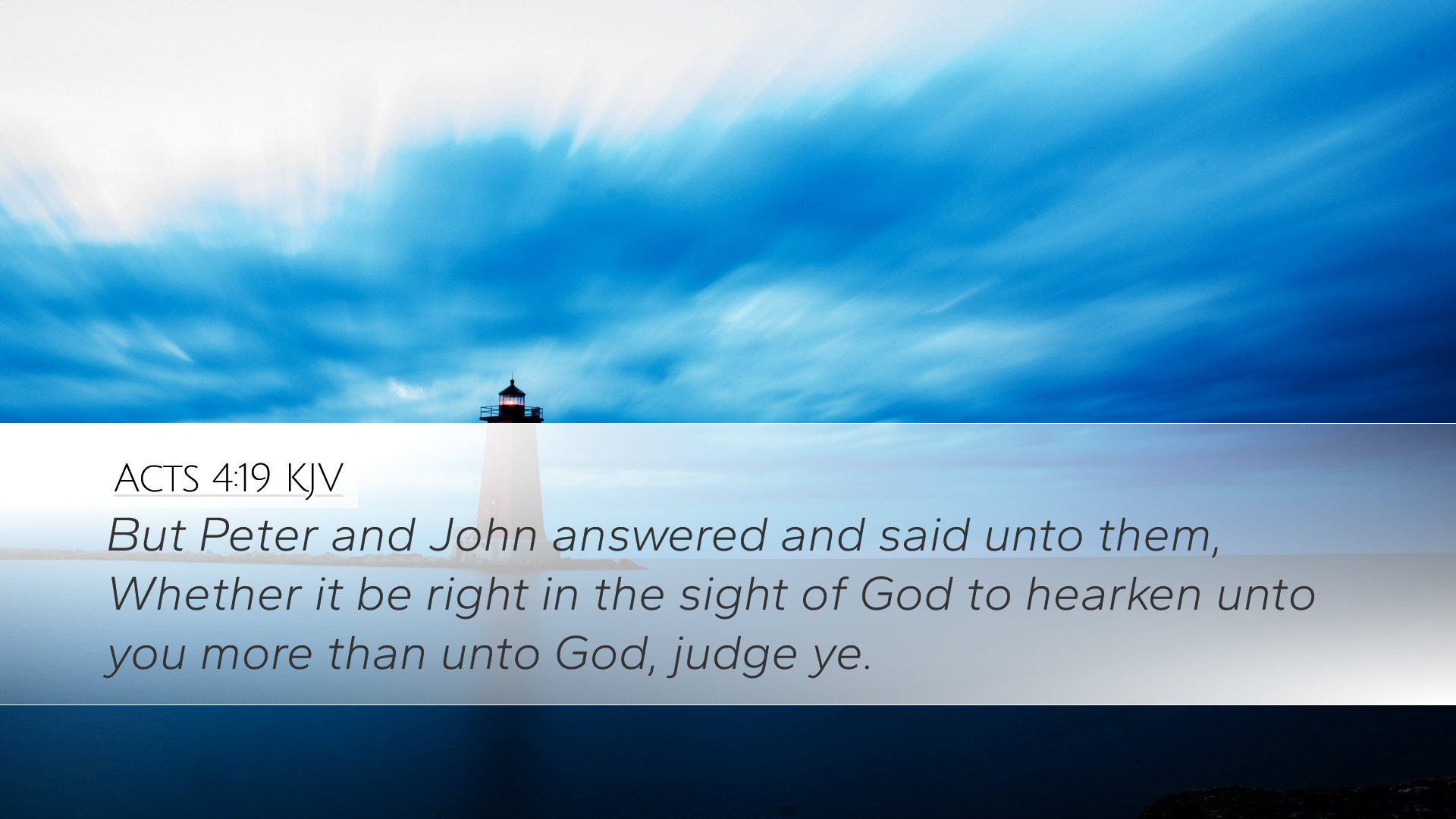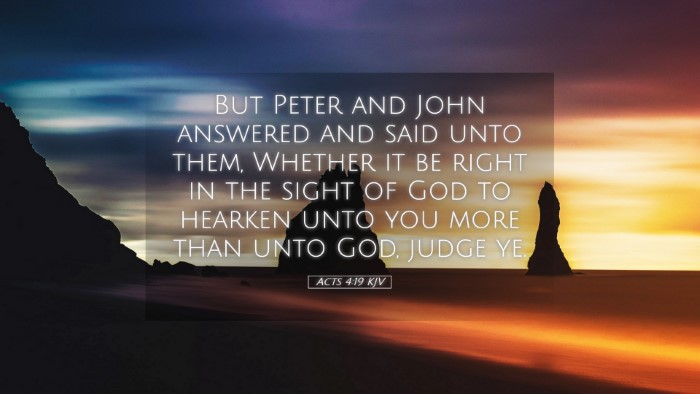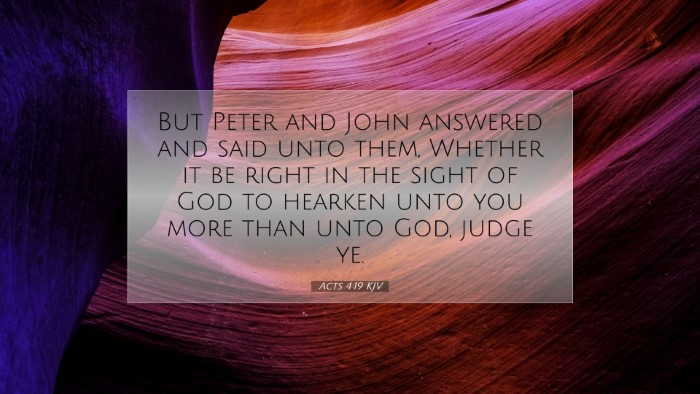Commentary on Acts 4:19
Acts 4:19 states, "But Peter and John answered and said to them, 'Whether it is right in the sight of God to listen to you more than to God, you judge.'" This verse captures an essential theological and ethical dilemma that resonates throughout the Christian faith.
Contextual Overview
To understand the profound implications of Acts 4:19, it is crucial to consider the context. Peter and John faced severe pressure from the religious authorities following their bold declaration of the Gospel. They had just healed a man who had been lame from birth, and their actions stirred significant public interest and controversy. As they preached Christ's resurrection in the Temple, they were arrested and brought before the council.
The Command of Authorities
The Sanhedrin, the ruling body of the Jewish people, commanded them not to speak or teach at all in the name of Jesus (Acts 4:18). This directive represents the intersection of civil authority and divine mandate, a scenario often encountered by believers throughout history.
Peter and John's Response
In their answer, Peter and John boldly assert their commitment to obey God rather than human authority. Matthew Henry notes, "They thought it better to please God than to gratify men." This perspective underlines a critical principle: the precedence of divine command over earthly edicts.
The Right to Speak
Peter and John’s response is not merely a refusal; it’s an assertion of their conviction, highlighting the necessity of discerning right from wrong in moral decision-making. Albert Barnes emphasizes, "They appeal to a higher authority, thus recognizing the ultimate judgment of God." In essence, they are challenging the council's authority to prohibit them from preaching the Gospel.
Theological Implications
This confrontation raises vital theological questions concerning the nature of authority and the believer's response to it. Adam Clarke observes, "True obedience to God might necessitate disobedience to man." This concept should encourage scholars and theologians to examine the historical and cultural contexts in which they operate and identify areas where beliefs may clash with secular authorities.
Historical Context
Throughout church history, numerous movements and reformations have emerged from similar convictions. For instance, many early Christians faced persecution for their beliefs, often responding in ways that ignited change and reform, validated by their steadfast faith in God even in the face of opposition.
Practical Application for Believers
Acts 4:19 offers practical wisdom for contemporary believers. It challenges us to consider our priorities when faced with conflicting responsibilities. Here are some reflections:
- Courage in Conviction: Like Peter and John, believers are called to demonstrate courage in their faith, especially when challenged.
- Discernment: The act of judgment they refer to is an invitation to discernment. We are encouraged to pray for wisdom when sifting through conflicting messages from society and the Word of God.
- Faithfulness to the Gospel: In a pluralistic society, the statement also serves as a reminder of the commitment to the Gospel as the foundation of truth.
Concluding Thoughts
Acts 4:19 stands as a powerful exhortation for Christians to evaluate their lives in light of their faith. The call to obedience to God over human authority remains a relevant theme today. The decision of Peter and John reflects a principle foundational to the Christian faith: true discipleship often requires standing firm despite opposition.
This passage invites pastors, students, and theologians to reassess their positions on authority in modern contexts. What does it mean to fear God rather than man? As practitioners of the faith, it is essential to reflect on these questions, allowing the response of Peter and John to guide our understanding and actions in our spiritual journey.


